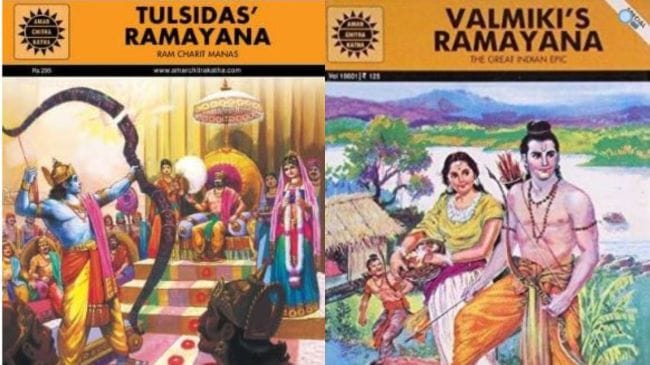Opinion The ‘Amar Chitra Katha’ of a Muslim millennial
I grew up in a modern India protected from religious divisions reading Hindu mythology, singing Christian hymns and attending Quran classes. But in today’s political atmosphere, I wonder if the little Muslim girl curiously reading a Ramayana comic was just a distant dream
 I would go so far as to say that I first picked up the values of self-sacrifice and love from the Ramayana.
I would go so far as to say that I first picked up the values of self-sacrifice and love from the Ramayana. A year after I was born, in 1992, the Babri Masjid was demolished, sparking communal riots in my country. As a little Muslim girl who grew up in modern India, I was unaware or rather protected from the religious divisions that were growing wider as I grew taller.
What I do remember was being fascinated by the Amar Chitra Katha comics that I read as we moved across cities in railway blue boxes. Amongst the various mythological stories animated by the comics, the Ramayana series was one of my favourites. I was enamoured by Lord Ram’s archery skills and his love for Sita, the sense of brotherhood he shared with Lakshman, and the strong friendship he had with Hanuman to rescue his wife from the clutches of evil Lord Ravan. I would go so far as to say that I first picked up the values of self-sacrifice and love from this story.
In a parallel universe, in my Christian missionary school, although we didn’t have access to magical comics, we were taught our constitutional rights and concepts of religious secularism using drab black-and-white textbooks. In the scorching assembly heat, we would sing hymns of praise to Lord Jesus while also pledging in unison that “all Indians are my brothers and sisters”.
Back home, I reluctantly woke up for my early morning Quran classes where I would be told by my Ustad that I would go to hell if I didn’t cover my head. My sister and I would read the poetic verses in the Quran while secretly questioning the myth that was Allah. “Was Allah anything like Ram or Jesus” I would wonder, and “if their paths crossed would they all speak to each other?”
Looking back, my child-like questioning and confusion around my religion was logical. I had this space for doubt because I grew up in a more socialist state like Kerala. These nuances around faith were not clear to me when I was a little girl. In retrospect, I realise that my romanticisation of communal harmony comes with a lot of privilege.
Fast forward to today, where I live in London and speak and think in big English words like liberalism, capitalism, and decolonisation, but still very much question whether a round table discussion with gods would ever happen. This fantasy of mine is naive and probably only worth making a comic out of. There is, however, a strong feeling of grief when I imagine this happening in India, especially today. The sadness is associated with how my belief around religion itself has changed because just like race and caste, one’s faith can also be divisive in complex societies. Externally though, the association is linked to the uprising of the Hindutva movement in my country which uses religion as a strong political tool to oppress minorities.
I usually distract myself from these thoughts now with God-like Instagram algorithms that loyally feed me pointless content on cats, self-love and Bollywood celebrities going to the gym. A far stretch from Amar Chitra Katha and constitutional rights, but my feed is filled with stories of the Ayodhya Ram Mandir inauguration and the mass celebrations around it. Praise for the government for fulfilling the promise of a new dawn with the return of Lord Ram left me feeling perplexed. Somewhere between a post of Kangana Ranaut screaming “jai shri ram” ecstatically, a cat wearing a lehenga and a pseudo-liberal posting a screenshot of the constitution of India — a post on “embracing your INNER CHILD” stood out to me and I wondered if the little Muslim girl curiously reading a Ramayana comic and singing “showers of blessings” was just a distant dream.
The writer is a global health researcher at University College London






